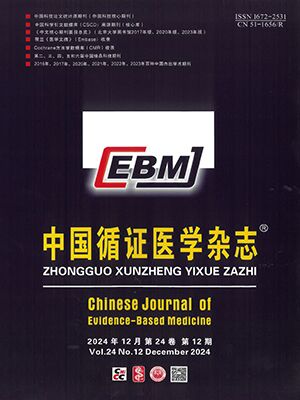Objective To assess the effectiveness and safety of tinidazole buccal tablets produced by China Associate Pharmaceutical Co. , Ltd. on periodontitis and pericoronitis. Methods A mukicenter randomized controlled doubleblind trial was designed. Three units from Shanghai, Hangzhou and Chengdu joined the study. The trial tablet oftinidazole was supplied by the mentioned Pharmaceuticals company. A marketed tinidazole produced by Zhejiang Hacon Marine BioPharmaceutical Co. Ltd. , was used as positive control. Both drugs were administered at a dose of 5 mg four times daily for 6 days. Outcomes measurement included symptoms, clinical signs of the patients with periodontitis or pericoronitis, and gingival index (GI), bleeding index (BI), plaque index (PI) and periodontal depth (PD) were measured for the patients with periodontitis. Subgingival bacterial samples taken from subgingival plaque of diseased teeth of the cases with periodontitis or from exudates of diseased wisdom teeth of the cases with pericoronitis were cultivated aerobically and anaerobically. Putative microorganisms were isolated and colony forming unit (CFU) were counted before and after treatments. All adverse drug reactions (ADIL) were observed, recorded, properly treated and followed.
Results Altogether, 157 cases met the inclusion criteria and entered the study. Lost to follow-up happened in 14 cases with drop-out rate of 8.9%. In per-protocal cases there were 109 with periodontitis (57 in trial group and 52 in control group) and 34 with pericoronitis (17 in trial group and 17 in control group). Basehne analysis demonstrated that the two groups were comparable. At the final examination, it was found that 85% of the cases in the periodontitis group showed significant)mprovement gingival bleeding, both gingival pain and biting pain subsided, PD, BI, GI and PI reduced with no significant difference between trial and control groups (P 〉0.05). The symptoms of sixty percent of cases with pericoronitis were improved. More than 75% of the cases with pericoronal pus, the pus were ehminated. Over 60% of the cases with lymphadenitis, the node swelling was subsided. Mouth opening increased in all cases with pericoronitis. All improvements in the cases with pericoronitis showed no significant difference between trial and control groups ( P 〉0.05 ). The effective rate only including cured and markedly improved cases reached 88.2% in both groups of pericoronitis. Various species of putative microorganisms were detected in patients with periodontitis or pericoronitis before treatment. A great proportion of the putative microorganisms eliminated or the quantity reduced after treatment, with no significant difference between trial and control groups (P 〉0.05 ). Candida albicans was not detected before and after treatment. Nine patients developed ADRs, 5 (6.8% )in trial group and 4 (5.8% )in control group. All the ADRs were mild and transient, not interfering with drug administration.
Conclusions This study showed the tinidozole buccal tablet with commercial name “Jinhe” supphed by China Associate Pharmaceutical Co. , Ltd. do inhibit the common putative microorganisms of periodontitis and pericoronitits, and do not influence balance of the local commensal microganisms. It reduces severity of the infectious inflammation and benefits improvement and/ or rehabilitation of periodontitis and pericoronitis, with only mild and transient ADRs. The trial and control tablets have similar efficacy and safety for patients with periodontits or pericoronitis.
Citation: SHI Zongdao,ZHOU Xuedong,WANG Xiaoyi,DING Yi,XU Yi,XIAO Xiaorong,CHEN Wei,LIU Guanjian. Safety and Effectiveness of Tinidazole Buccal Tablet on Periodontitis and Pericoronitis: A Prospective Randomized Controlled Trial. Chinese Journal of Evidence-Based Medicine, 2005, 05(11): 811-817. doi: Copy
Copyright © the editorial department of Chinese Journal of Evidence-Based Medicine of West China Medical Publisher. All rights reserved




